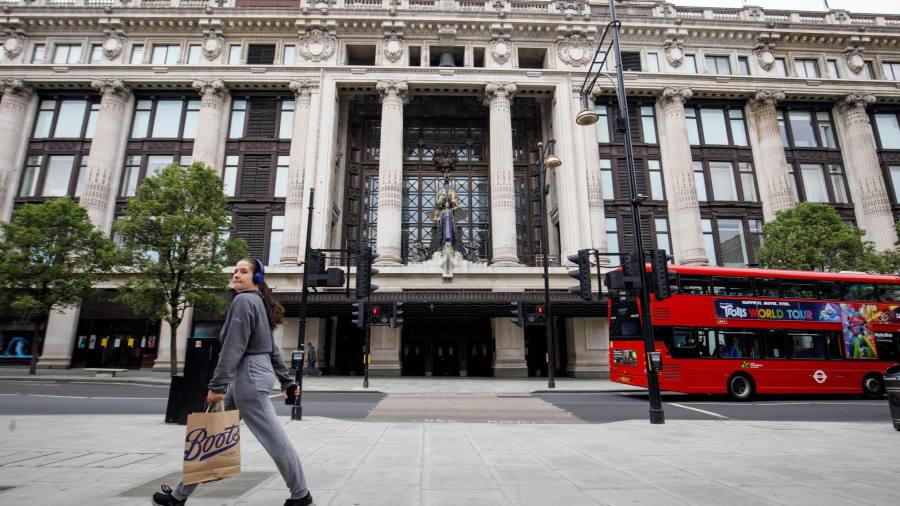
Bricks-and-mortar retailers such as Selfridges’ flagship store in London will pay significantly lower business rates, while operators of large warehouse and logistics facilities will see their bills jump, following a revaluation of commercial properties announced alongside the chancellor Jeremy Hunt’s Autumn Statement on Thursday.
Shops will also benefit more quickly from any rate reductions after Hunt scrapped so-called ‘downwards transitional relief’ in England, under which lower bills were previously phased in over three years — a change expected to cost the government £1.6bn.
Retailers have long complained that they shoulder a disproportionate share of the burden of business rates, a tax on commercial property based on rental value that penalised store-based operators and advantaged ecommerce companies like Amazon as shoppers switched to buying online in recent years.
Large department stores and hypermarkets were the biggest winners in the reassessment of the “rateable values” of commercial property in England and Wales by the Valuation Office Agency.
The rateable value of Selfridges’ store in Oxford Street, London, will almost halve from £30.5mn to £16.8mn, while the world’s largest Primark in Birmingham will see its rates bill drop from £1.1mn to around £680,000, according to research by Altus, a property consultancy.
The VOA said rateable values across more than half a million shops in England and Wales will fall by 10 per cent overall, from £16.2bn to £14.6bn.
But industry experts said the reductions were in aggregate smaller than expected, given the drop in shop rents in the wake of the pandemic, and could lead to an increase in challenges and appeals.
Robert Hayton, UK president of Altus, said the overall level of reductions was “very hard to square with the collapse in demand for new leases in the period around the valuation date, during the final stages and immediate aftermath of Covid restrictions”.
He added that MSCI UK data suggested that retail rents in England fell almost 20 per cent between the previous revaluation in 2017 and the latest one.
Retailers with significant high street estates, such as Next, WHSmith and Boots, have reported securing rent reductions of 30-50 per cent when taking out new leases or renewing existing ones.
“Standard high street shops are showing only a modest decrease [in rates] overall,” said Jerry Schurder, business rates policy lead at Gerald Eve, a commercial real estate consultancy. “It is a surprise.”
Schurder said the discrepancy between the decline in rates and the larger drop in rents may reflect limited activity in the retail property market at the time rents were assessed. “The only transactions taking place were ‘regears’ of leases and company voluntary arrangements,” he said, referring to an insolvency process often used to reduce rents or terminate leases.
The VOA said rateable values were determined by “a range of rents for similar properties, as well as other evidence including a property’s location and its physical attributes”.
It added that although rents in some high streets and shopping centres had seen substantial falls since the 2017 revaluation, they had risen in many market towns, holiday hotspots and neighbourhood shopping parades.
Other changes introduced in the Autumn Statement will also benefit shops. A business rates discount for smaller retailers was increased from 50 per cent to 75 per cent and extended for a year, while the multiplier — which converts rateable value into an annual payable amount — was frozen at 51.2p in the pound for a third year. It would otherwise have risen to a new high of 52.9p.
Those whose bills have risen will continue see the increases phased in over three years. That will spread out the increases for big logistics facilities, whose capital values and rents soared during the pandemic as many more people shopped online.
Altus estimates that their rates will rise by an average of 35 per cent, but some will see a far higher jump. The rateable value of Amazon’s huge automated warehouse at Tilbury, Essex, has risen by 74 per cent to £12.3mn.